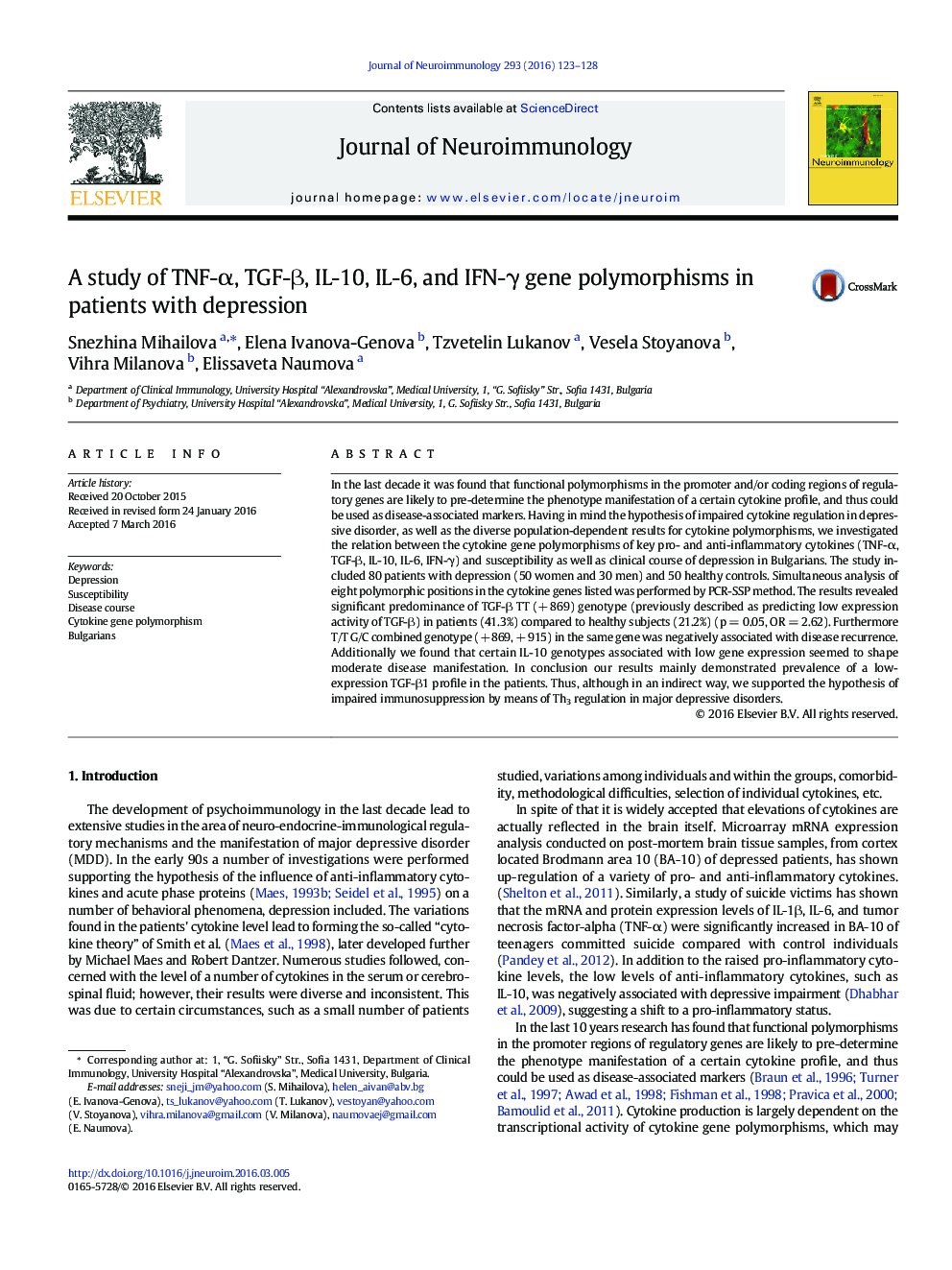| کد مقاله | کد نشریه | سال انتشار | مقاله انگلیسی | نسخه تمام متن |
|---|---|---|---|---|
| 3063851 | 1580381 | 2016 | 6 صفحه PDF | دانلود رایگان |

• The relation between 8 polymorphisms in five cytokine genes and depression was investigated for the first time in Bulgarians.
• The analysis of TGF-β1 codon − 10 recorded a statistically significant predominance of the TT genotype in the patients.
• TGF-β1 T/T G/C (+ 869, + 915) combined genotype was negatively associated with disease recurrence.
• The IL-10 genotype correlated with the severity of the disease as evaluated by the Hamilton rating scale.
• Although in an indirect way our results on cytokine genes support the hypothesis of impaired immunosuppression in depression.
In the last decade it was found that functional polymorphisms in the promoter and/or coding regions of regulatory genes are likely to pre-determine the phenotype manifestation of a certain cytokine profile, and thus could be used as disease-associated markers. Having in mind the hypothesis of impaired cytokine regulation in depressive disorder, as well as the diverse population-dependent results for cytokine polymorphisms, we investigated the relation between the cytokine gene polymorphisms of key pro- and anti-inflammatory cytokines (TNF-α, TGF-β, IL-10, IL-6, IFN-γ) and susceptibility as well as clinical course of depression in Bulgarians. The study included 80 patients with depression (50 women and 30 men) and 50 healthy controls. Simultaneous analysis of eight polymorphic positions in the cytokine genes listed was performed by PCR-SSP method. The results revealed significant predominance of TGF-β TT (+ 869) genotype (previously described as predicting low expression activity of TGF-β) in patients (41.3%) compared to healthy subjects (21.2%) (p = 0.05, OR = 2.62). Furthermore T/T G/C combined genotype (+ 869, + 915) in the same gene was negatively associated with disease recurrence. Additionally we found that certain IL-10 genotypes associated with low gene expression seemed to shape moderate disease manifestation. In conclusion our results mainly demonstrated prevalence of a low-expression TGF-β1 profile in the patients. Thus, although in an indirect way, we supported the hypothesis of impaired immunosuppression by means of Th3 regulation in major depressive disorders.
Figure optionsDownload high-quality image (160 K)Download as PowerPoint slide
Journal: Journal of Neuroimmunology - Volume 293, 15 April 2016, Pages 123–128